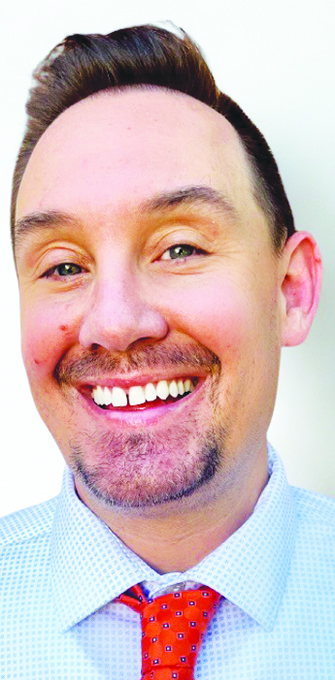Editorial: World War II stories ring true for many veterans
Published 9:34 am Thursday, September 3, 2020
|
Getting your Trinity Audio player ready...
|
Sheek Bowden Jr. came into the office Monday morning with two short stories he wanted to share.
Interesting and cute stories, sure. Stories of widespread interest, sure. Stories all would want to read, maybe.
But to Sheek Bowden, those stories – and all like them – brought back memories. All the way back to the 1940s when he was serving in the Pacific during World War II.
Trending
It would be easy to imagine that veterans such as Bowden – who saw and endured things no man should ever have to see – would think of their times during the war and become depressed. That happens way too often, from all wars, and we need to take care of those veterans.
But these stories made Bowden proud, as they should have. World War II may have been the last war that America fully supported. We had more than one reason for entering the war and for showing widespread support. The future of our country as we knew it and now know it was at stake. And young men like Sheek Bowden answered the call.
Bowden is a hero. Anyone who served in World War II was or is a hero. And there aren’t many left. Davie County lost J.B. Caldwell last week, and the remaining veterans are well into their 90s. Show them the respect they earned.
Back to those stories. I’ll tell them backwards, just for fun.
One was about Lt. Commander Butch O’Hare, a fighter pilot in the South Pacific. One day, his squadron was sent on a sortie mission, and after becoming airborne, O’Hare noticed his fuel gauge was low, so he asked and was given permission to return to top off with fuel.
On his way back, he saw a squadron of Japanese aircraft in position to ambush the Navy formation he had just left. He didn’t have time to warn his squadron.
Trending
So he went into action.
O’Hare dove his plane right into the formation of Japanese airplanes, firing wing-mounted 50 calibers at one enemy plane and then another. He flew among the planes, firing until his ammunition was spent and then trying to clip the wings of the enemy planes, anything he could to keep his fellow countrymen safe.
O’Hare single-handedly caused the Japanese squadron to change directions. A camera attached to his plane told the tale. He had destroyed five enemy aircraft.
This was in 1942, and O’Hare became the Navy’s first “Ace” of World War II, and the first Naval Aviator to earn the Congressional Medal of Honor.
A year later, he was killed in combat.
Heard of O’Hare? There’s an airport in Chicago that bears his name, and a memorial to him there between Terminals 1 and 2.
You see, O’Hare was from Chicago. He came from a prominent family. His father was an attorney. In fact, his father – known as East Eddy – became wealthy as the attorney for mobster Al “Scarface” Capone.
But Easy Eddie has a soft spot for his son. He protected him, provided for him and gave him the life others could only dream of. But that soft spot went deeper. Easy Eddie couldn’t leave his son with a good reputation because he was a successful lawyer for a mobster. Easy Eddie couldn’t leave his son with a good name, because the name O’Hare had been connected to everything corrupt in Chicago.
So Easy Eddie did what was probably the toughest – or perhaps easiest – thing he had done in his lifetime. He went to the authorieis with all he knew about Al “Scarface” Capone. A year later, Easy Eddy was shot down on the streets of Chicago.
The moral to the story: Easy Eddy left his son with far more than mansions and gold; he left him integrity. He left him with the knowledge that right is better than wrong at all times. He left him with the ability to be a hero.
And when the time came over the South Pacific to make a decision to save himself or risk death to others – the decision for Easy Eddy’s son Butch O’Hare couldn’t have been easy. But his father had shown him the difference between right and wrong, about service for the greater good above self.
Many World War II veterans like Bowden, Harold Frank and Craig Hanes, took that same honor into battle. And they brought it home, as well. They taught their own children how to be honorable, and we can only hope that tradition continues.
– Mike Barnhardt




